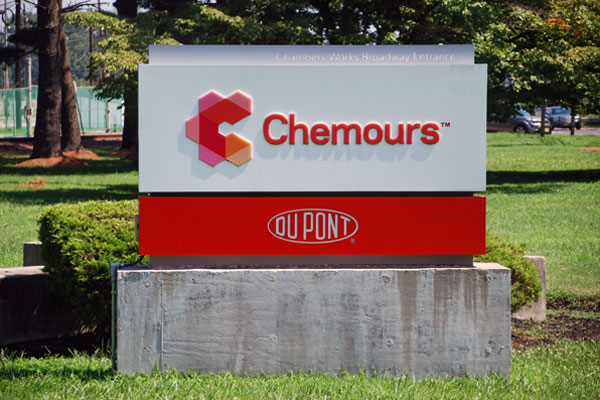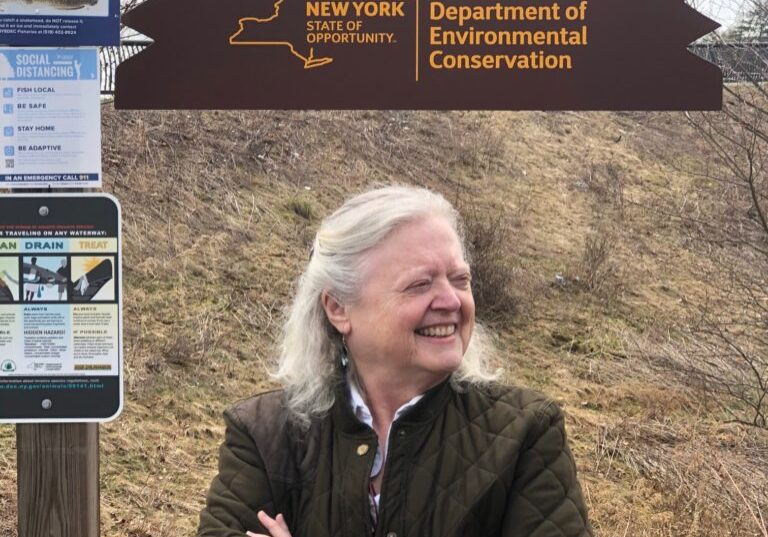
Landmark trial pits NJ against DuPont over ‘forever chemical’ pollution in South Jersey
| May 21, 2025
This article was originally published on NJ Spotlight.
New Jersey’s lawsuit against the chemical giant DuPont and its spinoff Chemours over pollution of toxic “forever chemicals” at a sprawling site in South Jersey reached the trial phase Monday, with arguments kicking off in federal court in Camden.
The proceedings come roughly six years after state environmental authorities ordered the two companies to clean up per- and polyfluoroalkyl substances (PFAS) pollution statewide, and more than five years since the lawsuit was filed after the companies ignored that directive.
PFAS are a family of thousands of chemicals that have been widely used in consumer products and for industrial purposes because they are extremely resilient, allowing them to withstand extreme environments and easily create water-repellent, stain-resistant or nonstick surfaces. But that extreme resilience also means the chemicals do not break down naturally, leading to the common nickname of “forever chemicals.”
These chemicals have been linked to a variety of health problems, including birth defects and cancers. They are so widespread in the environment that the blood of nearly every American contains some amount of PFAS.
Site of the pollution
The case centers on the Chambers Works facility, a nearly 1,500-acre site spread across Pennsville and Carney’s Point at the foot of the Delaware Memorial Bridge. DuPont built Chambers Works in the late 1800s and ran a variety of chemical manufacturing operations at the site until 2015, when DuPont’s spin-off company Chemours took over.
Polytetrafluoroethylene — better known as Teflon — was accidently discovered by DuPont scientists at Chambers Works in the 1930s. It was the first member of the PFAS family. While DuPont eventually moved its Teflon manufacturing work to other parts of the country, the company continued to work with PFAS at Chambers Works throughout the 20th century. Chemours has continued using PFAS at Chambers Works since taking over.
The chemical companies are expected to argue multiple defenses, including that the activity occurred before PFAS were regulated.
The chemical and manufacturing giant 3M was originally named in the lawsuit as well, because it was the primary source of a type of PFAS called perfluorooctanoic acid (PFOA) used by DuPont at Chambers Works. New Jersey announced a settlement with 3M last week worth up to $450 million.
A wastewater treatment plant built by DuPont was meant to help keep PFAS and other chemicals from being released into the Delaware River and the surrounding environment. Eventually, DuPont began delivering hazardous waste from other facilities around the nation to Chambers Works for disposal.
The state’s argument, the DuPont defense
State authorities argue that DuPont’s pollution controls at Chambers Works failed, and that the company understood the scope of the problem but failed to act to deal with the mess. The state also argues that DuPont was aware of the health and environmental threats posed by these chemicals, but that the company worked to keep that information from the public.
The state also alleges that DuPont tried to skirt laws on pollution cleanup through its corporate reorganizations that resulted in the business segments with PFAS liabilities being spun off into successor corporations like Chemours.
The chemical companies are expected to argue multiple defenses, including that the activity occurred before PFAS were regulated, that prior agreements between DuPont and state environmental regulators shielded the company from being sued, and that there is some shield from liability because some work done at Chambers Works was for government contracts.
The road to trial
The lawsuit was first filed in state court in 2019. The company successfully filed to have the case moved to federal court, a legal tactic frequently used by large corporations.
Even though the case is being heard in federal court by a federal judge, the legal questions at the heart of the trial are still related to the state laws that DuPont was originally accused of breaking.
The case is being heard as a bench trial before Judge Renée Marie Bumb, who indicated she plans to tackle the complex arguments through a series of “mini trials” aimed at different segments of the complaint.
The trial is expected to last into June. This lawsuit is the first pollution case of its kind to make it to trial in New Jersey history.
The state’s effort to hold DuPont accountable is critical to ensuring that a full cleanup of the area is done and that communities harmed for decades are made whole, said Tracy Carluccio, the deputy director of the Delaware Riverkeeper Network who has closely tracked PFAS pollution in South Jersey.
“The people of Deepwater, Carney’s Point, Pennsville, and Salem County who live closest to the Chambers Works facility have been ground zero for exposure to these highly toxic chemicals for decades. They have dearly paid for it with their health and well-being while Dupont has built an empire on the fortune they have made. The people harmed must be given the care they require through compensation, ongoing medical monitoring and treatment, and reparations,” Carluccio said.
“The indiscriminate release of PFAS by Dupont has resulted in pollution levels that have increased the risk of developing diseases linked to PFAS, including cancer, for those who have been exposed, and has grossly polluted the Delaware River which they treated as a convenient dumping ground.”


![DC_Image [Image 4_Assunpink Meets Delaware] meets Delaware The Assunpink Creek on its its way to meet the Delaware River. The creek passes through woods, industrial and commercial areas and spots both sparkling and filled with litter.](https://delawarecurrents.org/wp-content/uploads/bb-plugin/cache/DC_Image-4_Assunpink-meets-Delaware-1024x768-landscape-14f069364113da5e8c145e04c9f2367c-.jpg)




How much of the Delaware region is affected by this contaminated water problem?